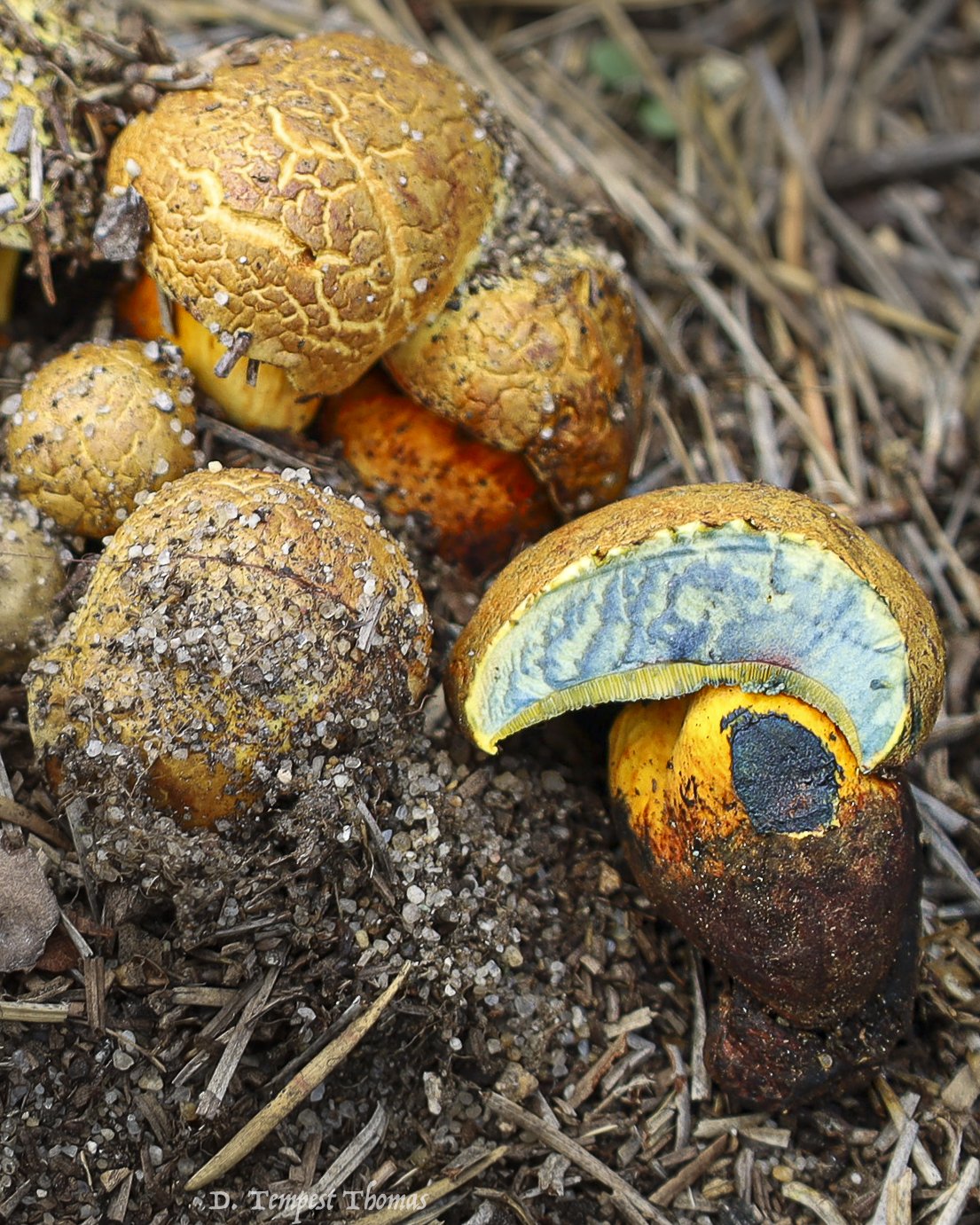Join Us in Discovering and Protecting Rhode Island's Fungi
Rhode Islanders, your help is needed to uncover the mysteries of our local fungi! We're on a mission to find and document rare, threatened, or under-documented fungal species. These unsung heroes of our ecosystems deserve our attention, and your observations can help.
Scientists, conservationists, and the Fungal Diversity Survey need more data about 20 particular fungi to better understand them and their habitats in hopes of safeguarding their future. Your high-quality observations can make a real difference in understanding and preserving the biodiversity of our beautiful state.
Join us in this most important effort to explore and protect the unique fungi of Rhode Island, the Northeast, and beyond.
Unlocking the Secrets of Northeast Fungi
-
Unlocking the Secrets of Northeast Fungi -
Join the Northeast Rare Fungi Challenge!
Species List
Amanita ristichii
Boletus purpureorubellus
Butyroboletus billieae
Calliderma (Entoloma) indigoferum
Caloboletus peckii
Clavulinopsis appalenchiensis
Dendrocollybia racemosa
Echinodontium ballouii
Entoloma flavoviride
Helvella palustris
Hodophilus (Camarophyllopsis) peckiana
Hypocreopsis rhododendri
Psathyrella epimyces
Pseudofistulina radicata
Squamanita umbonata
Tricholoma apium
Tricholoma grave
Underwoodia columnaris
Volvariella surrecta
Wynnea sparassoides
Across the northeast North American region, there are mushroom species that are extremely under-documented. To find out if these species are indeed rare the Fungal Diversity Survey (FUNDIS) created the Northeast Rare Fungi Challenge!
Unlike plants or animals, fungi are often left out of conservation plans. Out of the thousands of known fungi species, we have limited knowledge of how they're faring in our changing world. This challenge aims to change that for 20 special species in the Northeast, from the Mid-Atlantic to Canada.
How Can You Participate in the FUNDIS Rare Fungi Challenge?
Review the Free printable Challenge Booklet for details about target species descriptions, when to be on the lookout for them, beautiful distribution maps, helpful habitat photos, and instructions on creating high quality observations, specimen collections, and how to send your dried, tagged, and bagged Challenge specimens to FUNDIS for DNA sequencing.
If you think you've found one of the Challenge species, take multiple clear, close up photos of the specimen and its habitat, and share your observations to iNaturalist or Mushroom Observer. Please join our club project! You can also email Northeast_rare@fundis.org
After documenting your find, collect the specimen following proper guidelines. Details on collection and preservation can be found on the FUNDIS website.
Share your discovery on social media using #northeastrarefungi #rimycos
Document the other fungi you find throughout the year to help build our understanding of Rhode Island’s fungi.
Fungi are vital for plant, animal, and ecosystem diversity and dynamics.
Fungi in soils are essential for species' survival in their native ecosystems.
Fungi break down organic matter and recycle nutrients into the environment, a necessary process that transforms dead matter into nutritious substances for new life to thrive.
Fungi supply delicious mushrooms and play a crucial role in producing many foods like bread, wine, coffee, cheese, and chocolate through fermentation and metabolic processes.
Penicillin, made from the mold Penicillium, has saved over 200 million lives by providing life-saving abilities.
Fungi cleanse environments & absorb toxins ( like heavy metals and petroleum).
Fungi technology can replace plastics, leathers, and foams.
Up to 50% of soil biomass is carbon-storing fungi, including edible wild species. Fungi and dependent trees prevent CO2 buildup, lessening the effects of climate change.
The Fungal Diversity Survey (FUNDIS) is a nonprofit that protects biodiversity by conserving fungi and their habitats by increasing knowledge and public awareness of their diversity and distribution, equipping and engaging community scientists, and partnering with land managers, conservationists, and scientists.


